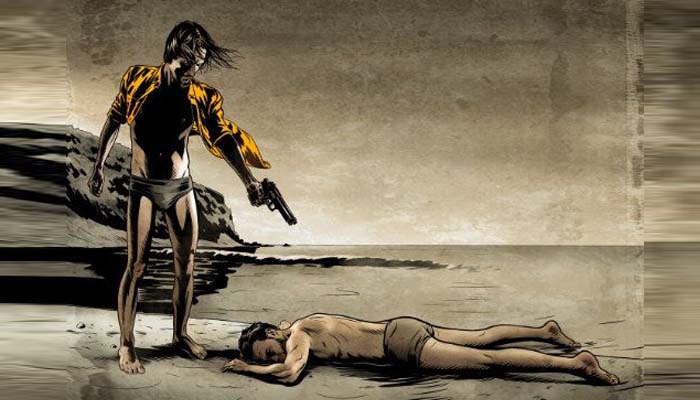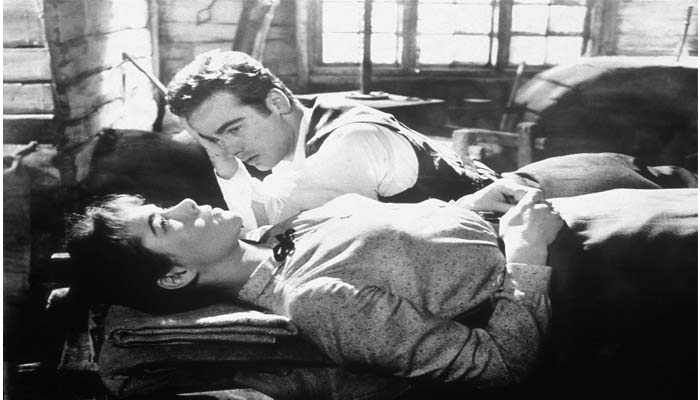
French novelist Albert Camus wrote a novella in 1942 titled The Stranger, which was also released in English as The Outsider. Meursault’s the main protagonist of the novella The Stranger.
Although Camus’s novel theme and attitude are sometimes regarded as instances of his philosophy, absurdism is combined with existentialism. Through the main character Meursault, Camus demonstrates his existentialist and absurdist ideology in this work. Despite the book’s little size, its message is contrary to its size.
Meursault is more drawn to the physical rather than the emotional or social components of the universe. Camus has attempted to illustrate the meaninglessness of life through Meursault. Meursault says,
“Well, so I’m going to die.” Sooner than other people will, obviously. But everybody knows life isn’t worth living. Deep down I knew perfectly well that it doesn’t much matter whether you die at thirty or at seventy since in either case other men and women will naturally go on living and for thousands of years. In fact, nothing could be clearer. Whether it was now or twenty years from now, I would still be the one dying.“ (Part 2, Chapter 5)
Camus truly holds the opinion that one should be allowed to make their own decisions rather than abiding by social norms because the result of “death” is unavoidable. Attending his mother’s funeral, Meursault shows no emotion. At his mother’s burial, he smokes a cigarette, and the next day, he resumes his regular activities (His choice of reaction). When he is prosecuted for the murder of an Arab, this is also seen as his crime. This cannot adequately summarize the contents of the book, but it captures the general theme that Camus explores in it.
Death appears three times in the stranger. First, there is death at the beginning of the novel when Meursault’s mother passes away. Next, there is death in the middle of the book when Meursault kills the Arab, and lastly his own death. These three deaths are significant occurrences in the narrative.
The novel’s opening line, “Today mother died” (Part 1, Chapter 1), shocks the reader and makes them anticipate that Meursault will be distraught. Immediately after, “Or maybe yesterday, I do not know.”(Part 1, Chapter 1) was said. The reader is taken aback by Meursault’s lack of interest. Because his mother was elderly and frail, some readers would conclude that Meursault did not grieve at all because her passing put an end to her suffering.
Meursault’s character is a depiction of the outcasts and iconoclasts in society. When we don’t fit the mold set by society, we are perceived as unusual and outsiders. This is demonstrated by the response to his mother’s passing and the absurdity of the funeral rites, which are actually performed for the living rather than the deceased. He wonders if he should smoke so near to his mother, but then decides it’s irrelevant (implying she is dead, what would she care at this point.)
When Marie asks him if he loves her, we can see this in his conversation with her as well. The expected response would be “yes,” but he responds, “A minute later she asked me if I loved her. I told her it didn’t mean anything but that I didn’t think so. She looked sad.” (Part1 Chapter 4) “No”, “I don’t think so.” In addition to all of this, he also just thinks about the now and has no true interest in the past or the future.
I never really got the impression that Meursault believed life was pointless rather than just ludicrous due to ritualistic behavior and social standards. Isn’t it rude that he finds his neighbors “interesting,” that he enjoys having lunch at Celeste’s, and that he wishes a mob of hate would gather for his execution? These actions give life purpose, but not in the ways that society may perceive them to be important. In light of everything, Meursault would not be nihilistic.
Meursault the Stranger Summary
Meursault conveys through his responses to the challenges he faces in life. Because of how he reacted to the loss of his mother, he is only guilty of a murder that would have been self-defense. Only because he didn’t adhere to societal conventions and rituals did society label this as reckless.
Because of Meursault mother’s love affair, she was able to start her life again in that old home. But some things end before they begin just like his mother’s death is the ultimate truth no time can be excluded from life if life has a beginning, then death will come and there is no alternative maybe today or after a few days.
The proof of the reality of death will be given to everyone, but we will never know that death will catch us at some point. If we think that all the happenings in society are worthless because nothing in this world is worth it, we don’t have a specific project, we haven’t structured our life as we do but when we see that something needs to be done to make our life better.
Then we keep up with society and follow all the rules and regulations given by them, just as his mother suffered all her life but if she got love at the last moment, she could cold-heartedly end her life completely. When society takes complete control of your life, leaving life behind is a kind of peace. When he realizes that this society will become a prison for him when he gets out of this prison, he chooses death to free his life from prison because he realizes that death will come one day or the other.
Meursault the Stranger Themes
Albert Camus’s passing is used by The Stranger for more than only the plots. For Camus, death is crucial to highlighting the book’s interpretation of existentialism. His mother’s passing, which emphasizes what readers may interpret as apathy, is a wonderful illustration of how he accomplishes this using Meursault’s perspectives on life and death. This is further supported by Meursault’s apparent lack of regret following the second death. In an effort to demonstrate that one’s own death is the last occasion in which one would ever experience emotion, Meursault is beginning to display it as his own death approaches, for example, the conclusion of the jailed priest.
According to he there is just one purpose in life—to exist and, eventually, to pass away—and since death is both unavoidable and natural, there is no reason to be sad about it. Camus is attempting to convey the idea that you must accept the consequences and cannot place the responsibility elsewhere. An illustration of this is when he refuses to place the blame on God because, in his opinion, it was his decision to shoot an Arab and as a result, he is also responsible for the results.
Meursault’s View of the World Before Death
Before Meursault died something changed, He wanted to live. He had dreams. His imagination was very vivid. Evidence that people are afraid of death is also seen here. But if it is true, people are very surprised to see that death can be brought closer because we know that life is basically with us as long as we are in control of our life.
Meursault’s attitude toward death has changed and grown from indifference to terror to acceptance from the beginning to the finish. The prosecutor basically puts Meursault on trial for being apathetic to his mother’s death rather than looking into the actual crime that was done. The trial, in the eyes of the prosecutor, was not intended to confront the heinousness of either “crime,” but rather to convict a heartless rebel.
One may also see how the author uses terms with a negative connotation to suggest Meursault’s discontent in jail. This chapter demonstrates how Meursault’s growth in self-reflection changes when he notices his own image on the tin plate. When he looks directly at himself, unlike previously, he observes and understands himself. “I distinctly heard the sound of my own voice.
I recognized it as the same one that had been ringing in my ears for many long days, and I realized that all that time I had been talking to myself. Then I remembered what the nurse at Maman’s funeral said. No, there was no way out, and no one can imagine what nights in prison are like.” (Part 2, Chapter 2). The section in which Meursault eventually recognizes himself and his voice demonstrates how life is essentially a succession of identical occurrences and decisions.
The significance of Meursault’s voice recognition is a symbol of his self-awareness. Meursault had never before heard his own voice or recognized himself. As he spends more and more time in prison, this huge development reveals Meursault’s learning to comprehend himself, his beliefs or philosophies, and his existence.
The endless days Meursault spends behind bars support his understanding of the futility of life. Days in jail “ended up flowing into one another” (Part 2, Chapter 2) for Meursault, making it seem as though he was imprisoned. “For me it was one and the same unending day that was unfolding in my cell and the same thing I was trying to do”. (Part 2, Chapter 2) He realizes the meaninglessness of life and where his life is going while confined.
Meursault returns to his prison cell and ponders his fate. It is very difficult to accept his misfortune. He dreams of a successful appeal. When the Priest wants to see him, he refuses. One day he forcefully comes to his room. He asks him to give up his unbelief, to put his faith in God. Like the magistrate, he is surprised to find that Meursault has no belief in life after death. Meursault soon became enraged and grabbed the priest and started yelling at him. Meursault says he is right because he believes in this meaningless world.
He also believes that human presence on earth has no meaning. He has given up all hope for the future. That makes him happy. He waits for death, abandoning himself to what is in his destiny.
Is life meaningless until it gets a purpose? Meursault, an emotionally detached young man who does not attribute much meaning to anything. and who is emotionally passionless and does not give any importance to anything, is the main character in “The Stranger.” Meursault shows no emotion at his mother’s funeral, participates in his neighbor’s plan to humiliate a woman, and even commits a violent crime by killing an Arab for defense. He believes that morality has no place in the world since it is meaningless.
This mentality breeds enmity between Meursault and the structured society he lives in, gradually deepening his alienation up to the book’s violent conclusion. Camus was praised for his straightforward philosophy, in contrast to his rejected protagonist. That explored the value of life amidst absurdity many of which circled back to the same philosophical question.
Meursault could have avoided his death if he had accepted all the rules of society. If he said he believed in God. If only he had withdrawn himself from all invitations and made himself conciliatory with all. If when his mother died, he cried to show the people. Then he wouldn’t have gotten the death penalty today because society looks more at the time people leave behind and they judge it.
They don’t want to understand people completely. They want to insert their own control into everyone’s life. So, if he had given his life to the whole society then he would have could have saved. People do not want to understand people, they want to take all kinds of irrational activities given in society and impose them on others. Being a realist is not allowed to exist. People will call people bad as long as they do not understand them. Time and circumstances change people. It can be seen how he wants to solve all kinds of problems with realistic thinking. But it becomes a problem and finally, he chooses death as a solution to the problem.
Meursault is at peace with the idea that he will eventually pass away. This acceptance of death’s inevitable conclusion represents Meursault’s victory against society. By expressing regret for his actions, he would be implying admitting that the murder was wrong and that his punishment was appropriate. Meursault subtly questions the moral norms of society, which state that one should weep over death, by showing his indifference.
By: Md. Rabby Sharif Ador
Works Cited
“Deaths Role In Albert Camus The Stranger English Literature Essay.” ukessays.com. 11 2018. UKEssays. 08 2022 <https://www.ukessays.com/essays/english-literature/deaths-role-in-albert-camus-the-stranger-english-literature-essay.php?vref=1>.
Sebba, Helen. “Stuart Gilbert’s Meursault: A Strange” Stranger”.” Contemporary Literature 13.3 1972 : 334-340. <https://www.jstor.org/stable/1207725>
Shobeiri, Ashkan. “Meursault, an Absurd Happy Man.” Australian Journal of Basic and Applied Sciences 7.2, 2013: 838-45.
Scherr, Arthur. “Camus and the denial of death: Meursault and Caligula.” OMEGA-Journal of Death and Dying 69.2, 2014: 169-190.
< https://journals.sagepub.com/doi/abs/10.2190/OM.69.2.e>









